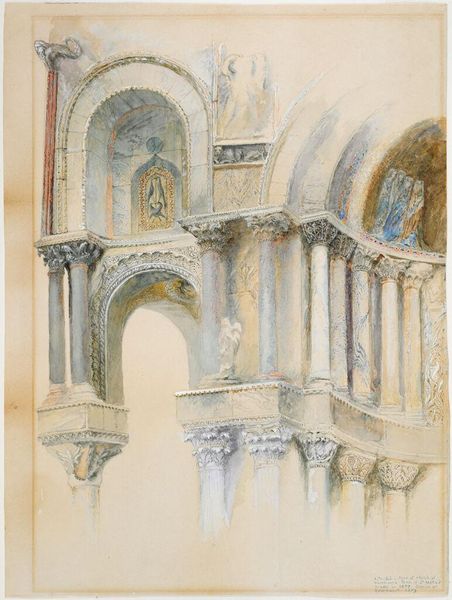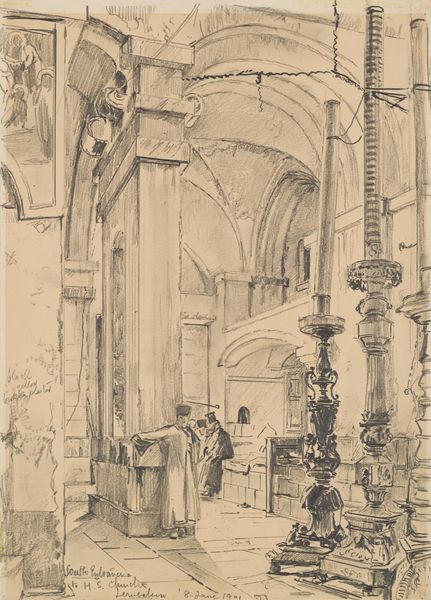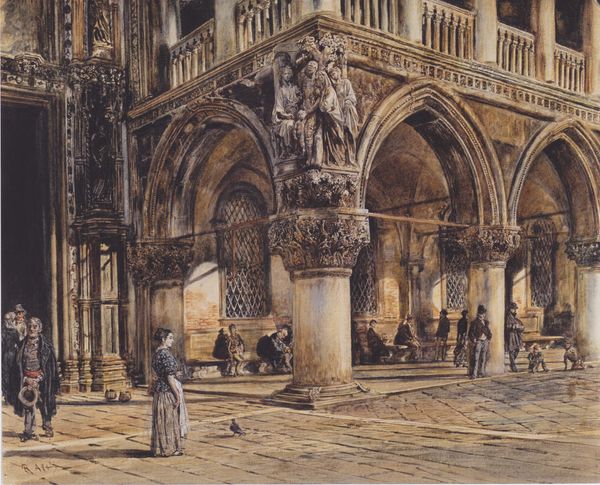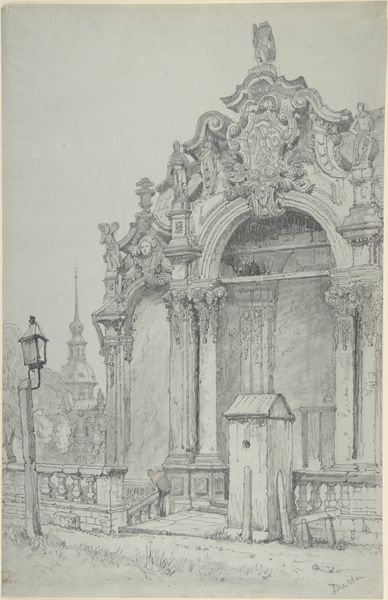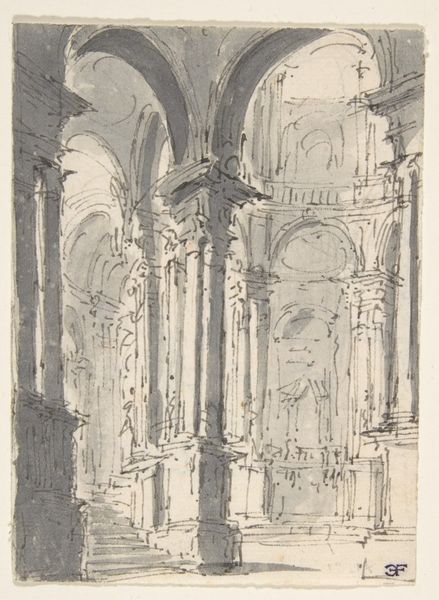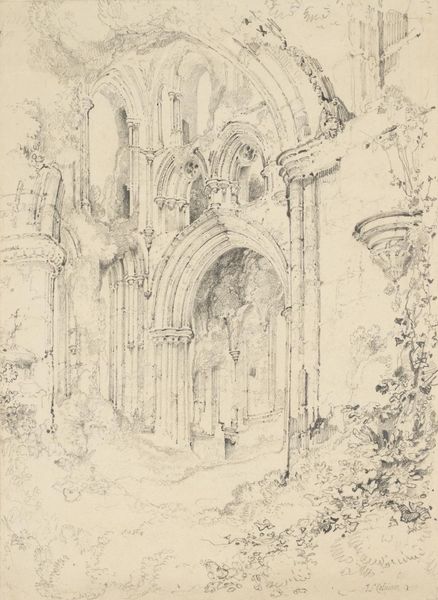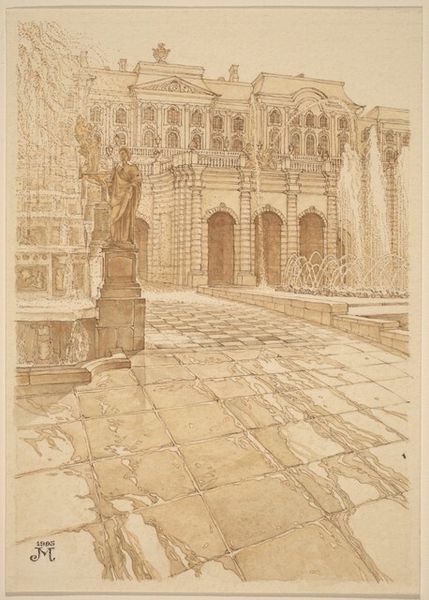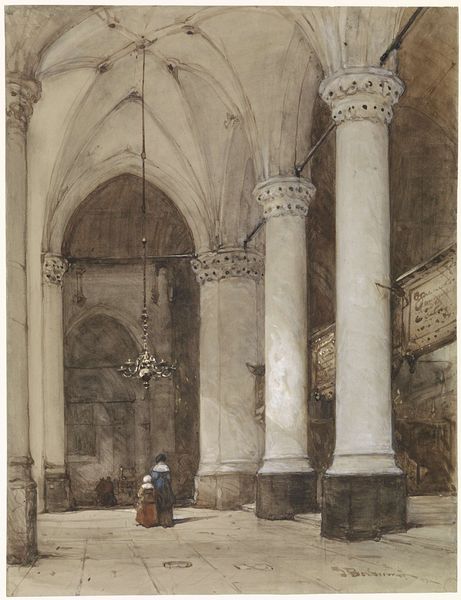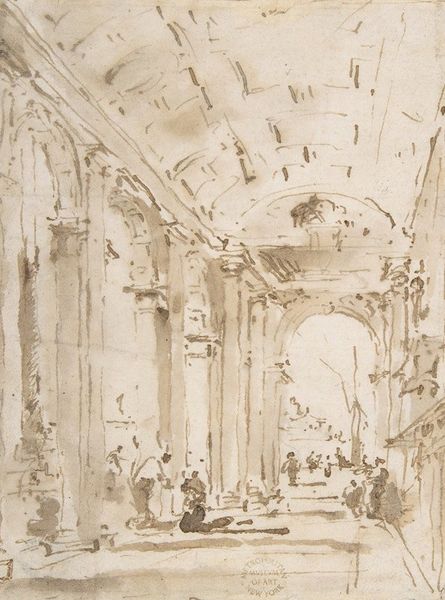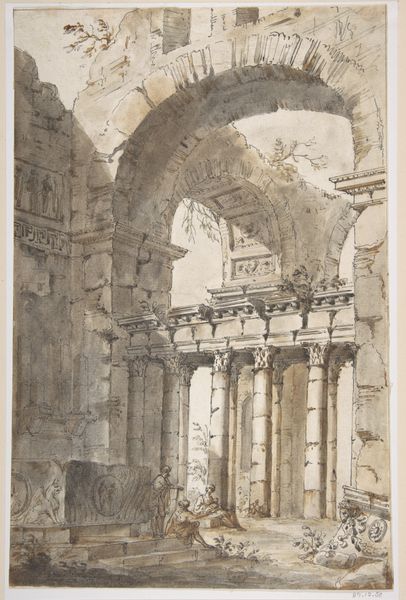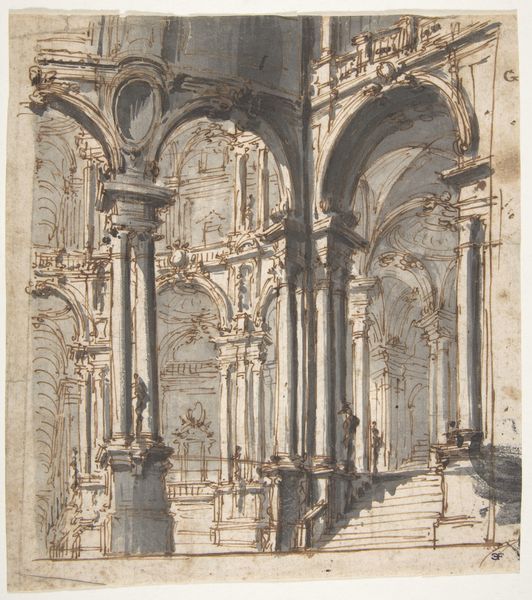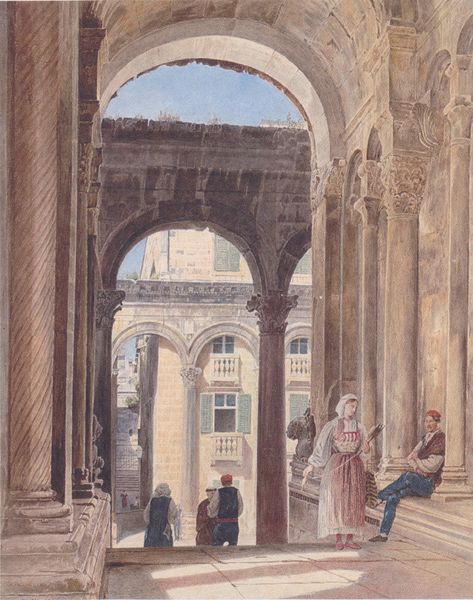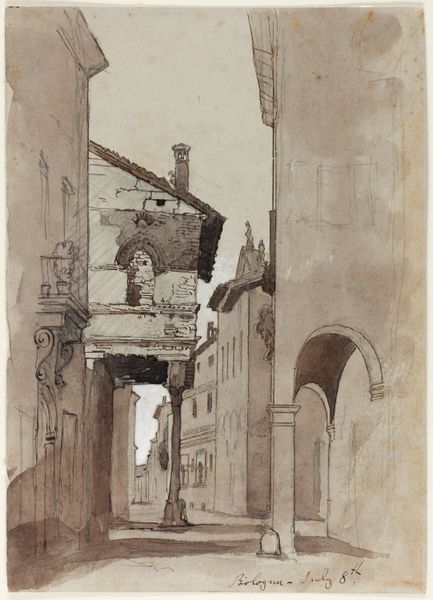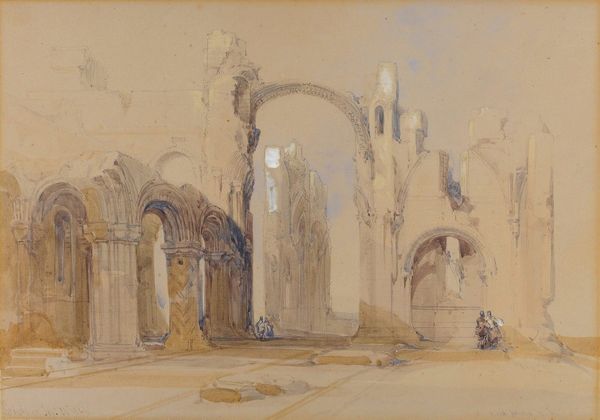
drawing, carving, painting, paper, watercolor, pencil, architecture
#
drawing
#
carving
#
painting
#
pencil sketch
#
landscape
#
perspective
#
charcoal drawing
#
paper
#
charcoal art
#
oil painting
#
watercolor
#
column
#
romanticism
#
pencil
#
arch
#
cityscape
#
academic-art
#
charcoal
#
watercolor
#
architecture
Copyright: Public domain
Editor: We’re looking at "The Ducal Palace," a watercolor and pencil drawing made around 1850 by John Ruskin. There's something melancholic in the muted palette he's chosen; a pensive quality. What stands out most to you? Curator: Melancholic indeed. It feels like Ruskin is not just depicting Venice, but meditating on its fading glory. The crumbling details, the way the light struggles to break through...he's not just an artist here; he’s a poet lamenting the passage of time. Have you noticed how he uses the verticality of the columns to almost cage the open space? Editor: Yes, it almost creates a sense of being trapped, even within such grandeur. Was Ruskin intentionally using the architecture to symbolize something beyond the physical structure? Curator: Absolutely! For Ruskin, architecture was never just brick and mortar. It was a moral statement, an embodiment of society's values. He saw in Venetian Gothic a certain integrity, a handcrafted beauty that was being threatened by industrialization. This drawing could be a call to remember those values. Doesn't the way he renders the ornate details, with such love and care, speak volumes? Editor: It does. I can see a real tension here – a desire to preserve beauty in the face of change. So, would you say Ruskin's personal feelings heavily influenced his artistic representation of Venice? Curator: Immeasurably. Ruskin wore his heart on his sleeve – and his artistic intention was a love letter, elegy, and a warning, all rolled into one, all through these stunning architectural portraits. The 'Stones of Venice' series itself echoes this intention as a larger, much louder body of work that sought to instruct. A beautiful lesson through art, no? Editor: Definitely! I feel like I have a much deeper understanding now, not just of the artwork but of Ruskin's passion and concerns. Thanks for sharing your insights. Curator: My pleasure. I believe, in viewing art, it becomes a reflection of oneself as well. Thank you for taking this contemplative moment.
Comments
No comments
Be the first to comment and join the conversation on the ultimate creative platform.
